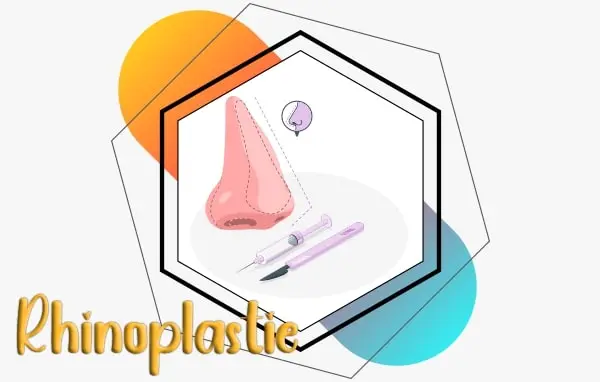Rhinoplasty: 10 Questions to Ask Before a Nose Job
At What Age Should You Consider Rhinoplasty?
The decision to undergo rhinoplasty depends on several factors, including age. It's generally recommended to wait until nasal growth is complete, which usually occurs between ages 15 and 17 for girls and 17 and 19 for boys. This ensures the nose has reached its final size and the bone and cartilage structure is stable enough for surgery. However, each case is unique, and the surgeon will also assess other aspects such as patient motivation, emotional maturity, and realistic expectations before recommending rhinoplasty.
How to Choose Your Cosmetic Surgeon?
Choosing your cosmetic surgeon for a rhinoplasty is a crucial step. Thorough research and consideration of several criteria are recommended. First, it's essential to verify the surgeon's qualifications and experience. It's preferable to choose a surgeon who regularly performs nose surgery and has specific expertise in rhinoplasty. Consulting reviews and testimonials from previous patients is also important to gauge satisfaction with results. The cost of rhinoplasty is a factor, but it shouldn't be the sole deciding criterion. A preliminary consultation is recommended to discuss your expectations, review before-and-after photos of similar cases, and ask important questions. It's crucial to choose a cosmetic surgeon with whom you feel comfortable, trust, and who can deliver your desired rhinoplasty results.
How to Explain What You Want?
Clearly communicating your desires to your surgeon is essential. Bring photos of noses you like or want to achieve. This gives your surgeon a better understanding of your expectations and goals. Describe the aspects of your nose you want to change, such as size, shape, bridge, or nostrils. Be honest and open about your aesthetic preferences and concerns. By discussing your goals and asking questions, you and your surgeon can determine the desired outcome and best approach to achieve your ideal nose.
What if I Have Breathing Problems?
If you have breathing problems, rhinoplasty can be a solution. It can correct functional issues affecting your breathing, such as a deviated septum, enlarged turbinates, or other structural abnormalities. A specialist can assess your case and recommend the best surgical options to improve your breathing. Ultrasound rhinoplasty is an advanced technique offering greater precision and more satisfying results.
 Can Rhinoplasty Correct Everything?
Can Rhinoplasty Correct Everything?
Rhinoplasty, or nose surgery, aims to alter the size, shape, or function of the nose. However, it can't correct everything. It can address issues such as a wide nose, nasal hump, droopy tip, asymmetrical nostrils, and other aesthetic imperfections. However, limitations exist, as the nose's bone and cartilage structure may restrict correction possibilities.
What is the Procedure Like?
Rhinoplasty is nose surgery. Various techniques exist, including ultrasound rhinoplasty, which is advanced and precise. Before surgery, the cost will be discussed to ensure financial accessibility. During surgery, the nose is reshaped to correct aesthetic or functional defects. The procedure usually takes 1 to 3 hours, depending on complexity. After surgery, the patient can observe the before-and-after results. Following post-operative instructions is crucial for optimal recovery.
Are the Aftereffects Demanding?
Post-rhinoplasty aftereffects can be demanding but vary. Discomfort, pain, and swelling are normal in the initial days. Bruising around the nose and eyes may also occur but fades over time. Analgesics will be prescribed for pain management. Following the surgeon's post-operative care recommendations, including wearing a nasal splint and using cold compresses to reduce swelling, is important. Avoid strenuous activity and dusty environments during recovery (about one to two weeks). Final results may take several months, but patients usually feel much better after the first week.
Can I Correct My Nose with Injections?
Nose correction with injections is possible in specific cases. Hyaluronic acid injections are commonly used to add volume or smooth imperfections. This method corrects minor or temporary defects like slight hollows or bumps. However, it's temporary and requires regular injections to maintain results. For more significant or lasting problems like a deviated septum or breathing issues, surgical rhinoplasty may be necessary.
How Much Does Rhinoplasty Cost? Is it Reimbursed?
Rhinoplasty costs vary based on the procedure's complexity, surgeon's experience, and location. In France, the average price ranges from €4,000 to €8,000. This may not include consultation, anesthesia, post-operative follow-up, or additional procedures. Rhinoplasty is generally considered cosmetic and not covered by health insurance. However, exceptions exist for medically necessary rhinoplasty (e.g., a deviated septum causing breathing problems), where partial or full coverage may be possible. Check with your surgeon and insurance provider for reimbursement options.
Will My Nose Be More Sensitive?
Increased nasal sensitivity is possible after rhinoplasty, due to inflammation and the body's natural response to surgery. Mild tenderness and pain may occur during recovery but gradually decrease as you heal. Your surgeon can prescribe medication for discomfort. Following post-operative instructions promotes optimal healing and minimizes prolonged sensitivity.
 Can Rhinoplasty Correct Everything?
Can Rhinoplasty Correct Everything?